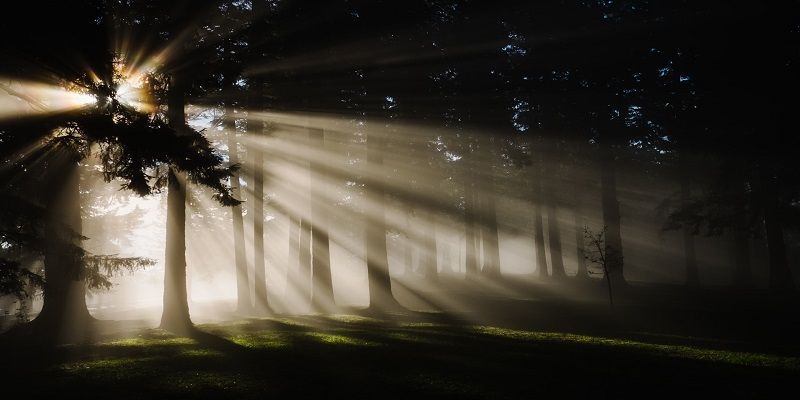What to Know About Scattering Ashes in Public Places
Explore what you need to know before scattering remains in public places, including legal, ethical, and practical guidelines for a respectful experience.

The growing popularity of cremation reflects changing attitudes toward memorialization, with more individuals opting for personalized and environmentally conscious ways to honor their loved ones. As part of this shift, many families consider public spaces for scattering remains—natural settings that offer beauty, tranquility, and emotional significance. If you are exploring cremation service in Evanston, IL, and considering a nontraditional farewell, it is essential to understand the legal, logistical, and ceremonial aspects involved in this choice.
Understanding Legal Considerations
Laws around scattering remains vary significantly by jurisdiction. In the United States, federal, state, and local regulations all play a role, making it crucial to check the specific laws for your location. National parks, for example, may allow scattering with a permit, but city parks or beaches may prohibit the act outright or require formal permissions.
Federal and State Regulations
The Environmental Protection Agency (EPA) permits scattering at sea, but only at least three nautical miles from shore. Scattering on inland waters such as rivers or lakes may fall under state or municipal governance, requiring additional approvals. Similarly, while Illinois does not outright ban the practice on public land, each city or town, including Evanston, may impose its own restrictions or require advanced notice.
Private and Public Property Differences
If a location is privately owned, you must obtain written permission from the landowner. On public lands, like forests or trails, contacting the appropriate agency—such as the Department of Natural Resources or municipal authorities—is necessary. Failing to do so could result in legal consequences and public backlash.
Choosing a Meaningful Location
Selecting a location that held meaning for the individual is a deeply personal decision. Some families opt for scenic lakesides, forested trails, or peaceful gardens. While these locations provide serenity and symbolic significance, ensure they are accessible, safe, and permissible for ceremonial gatherings.
It is advisable to have a backup plan in case weather or unexpected circumstances affect your ability to carry out the ceremony as planned. Visiting the site ahead of time can help you assess conditions and determine the most appropriate way to proceed.
Ethical and Environmental Practices
Even when a location permits the act, respectful behavior is paramount. Choose a time with minimal foot traffic to ensure privacy and avoid disrupting others. If you are planning a small memorial event, be discreet and mindful of the environment.
Use biodegradable containers and avoid leaving behind items such as plastic bags, non-natural tributes, or decorative markers that could disturb wildlife. Environmental responsibility ensures the site remains undisturbed for future visitors.
Cultural and Family Sensitivities
Scattering remains may be deeply emotional for those involved, and cultural or religious values should always be respected. Before organizing such an event, talk with all immediate family members or decision-makers to confirm this aligns with their expectations or beliefs. In some traditions, specific rituals accompany the act, while others may oppose it entirely.
Open communication helps ensure the process is not only legally compliant but also emotionally healing for everyone involved.
Planning a Thoughtful Ceremony
While some families prefer a quiet, solitary act, others may incorporate readings, music, or a group gathering. Consider incorporating elements like a memory circle, planting a tree nearby (where permitted), or inviting attendees to share stories.
Such rituals offer a sense of closure and collective remembrance. If you are unsure how to structure the event, many funeral professionals offer guidance and even officiant services to support personalized ceremonies.
Pre-Planning for Future Peace of Mind
Considering a scattering ceremony in advance can spare loved ones from difficult decisions during an emotionally challenging time. Pre-planning provides clarity about preferences and helps ensure legal and ethical protocols are followed without guesswork. It also offers peace of mind that the final wishes will be carried out with dignity and respect.
Community-Specific Considerations in Evanston
Evanston, IL is home to a variety of public parks and lakefront areas. While these may seem ideal, the city maintains regulations that could affect whether a scattering is allowed. It is highly recommended to contact the Evanston Parks and Recreation Department or consult with a local funeral director familiar with municipal guidelines.
This localized insight can prevent complications and ensure a smooth, respectful experience for everyone involved.
Final Thoughts
Scattering remains in public places can be a meaningful and intimate way to say goodbye, but it must be done with thoughtful preparation and adherence to the law. Whether guided by personal beliefs, a love of nature, or a desire for simplicity, this memorial practice can provide lasting peace when approached with care. If you are looking for a cremation service in Evanston, IL that understands both the emotional and practical aspects of such decisions, contact Chicagoland Cremation Options for personalized guidance and support.












